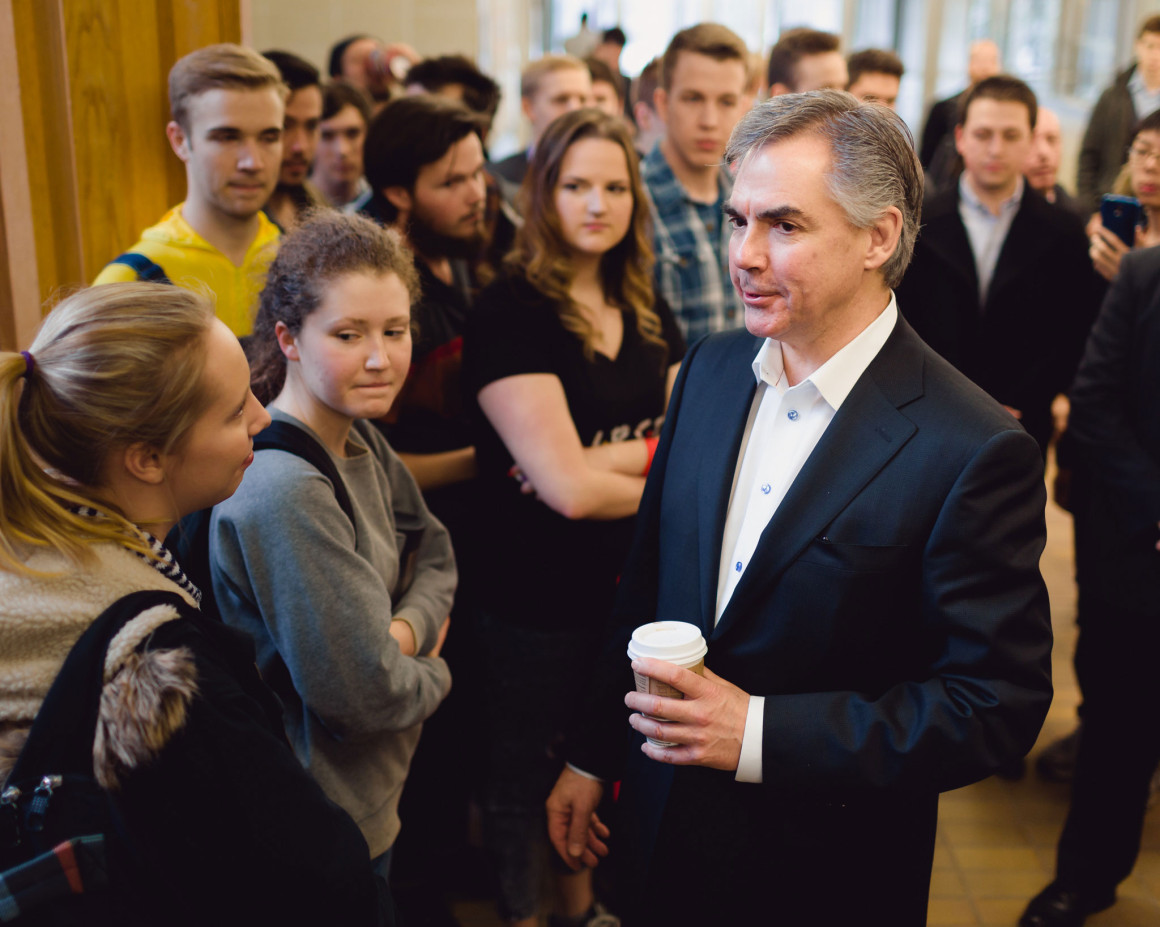
Alberta government cuts funding to post-secondary education, raises health care fees and ends the flat tax in 2015-16 budget
Chris Adams, March 26, 2015
After months of speculation, minister of finance Robin Campbell unveiled Alberta’s provincial budget for the 2015–16 fiscal year.
The government is forecasting a $5-billion deficit for 2015–16, but expects to balance the budget by 2017–18.
The province is facing a $7-billion revenue shortfall due to the low price of oil. This time last year, oil was around $100 per barrel. Today, West Texas Intermediate, a standard benchmark, sits just below $50 per barrel.
Post-secondary institutions will face more than a four per cent cut over the next two years, starting with a 1.4 per cent cut this year and a 2.7 per cent cut the next.
University of Calgary president Elizabeth Cannon called the budget “manageable,” saying administration thought the cuts would be much deeper.
“What’s really important to us is our ability to maintain enrolment. We want to make sure the number of students we can take this September is the same as last September. I’m confident we can do that,” Cannon said.
The government will allocate $74 million over the next six years to increase access to post-secondary education for First Nations, Metis and Inuit students.
The program that funds Alberta’s post-secondary schools, Campus Alberta, will see a shift to reduce post-secondary schools’ reliance on government funding.
Student leaders speculated that the government would cut the inflation-tied cap on tuition increases before the budget was announced. However, Alberta Premier Jim Prentice said there are no “immediate plans” to cut the cap.
Students’ Union vice-president external Levi Nilson said that while the short-term cuts aren’t as drastic as they expected, he isn’t happy with the government’s long-term plan for post-secondary.
“It’s not good, long term, especially in regards to tuition. They’re definitely prepping to either get rid of the tuition cap or change it drastically. It’s extremely concerning,” Nilson said.
Nilson said while he expects the government will alter the tuition cap, he’s happy they chose not to do it this year.
“It gives us time to get ourselves together and communicate the importance of the cap and how much of a disaster it would be if they cut it,” Nilson said.
Albertans will once again pay health-care premiums, which were cut under former Alberta Premier Ed Stelmach. Premiums will run between $200–$1,000, depending on family income. These premiums will be deducted from employee paychecks and will only apply to Albertans who make over $50,000 per year. Money from the premiums will go into general revenues instead of directly toward the health-care system.
Alberta’s health-care budget for 2015–16 sits at $18.9 billion, $160 million less than expected.
The province will maintain the 10 per cent income-tax rate for those who earn under $100,000. But anyone who makes over $100,000 will see an increase to 10.5 per cent next year and up to 11.5 in 2018. Albertans earning over $250,000 will be taxed at 12 per cent by 2018. This still leaves Alberta with the lowest top-tier income-tax rates in Canada.
Campbell said the government won’t increase corporate taxes, saying that doing so would drive corporations to do business in other provinces.
Tobacco taxes will increase by $5 per carton of 200 cigarettes, and the loose tobacco tax will rise at an equivalent rate. Alcohol taxes will also see a mark up of 90 cents per 12-pack of beer and 16 cents per bottle of wine or spirits.
Traffic fines will also increase by 35 per cent.
The provincial government will cut nearly 2,000 government jobs, many of them in health care.
Campbell said the government is “committed to fixing the fundamental problems in Alberta’s fiscal foundation” and wants to get Alberta off the “energy-revenue roller coaster.”
The provincial government forecasts Alberta’s economic growth slowing from four to below two per cent in 2015.
Campbell hinted at a nine per cent cut for all government departments on Feb. 11, but suggested that health care and education would be protected.
The province last cut the post-secondary budget in 2013, when they slashed $147 million. The University of Calgary saw a 7.3 per cent decrease in its Campus Alberta grant and was forced to cut enrolment and introduce new market modifiers. The U of C has since conglomerated programs, sought private donations at a faster pace and relied on more sessional instructors.
The provincial government asked Albertans in a survey from Feb. 5–28 what changes they want out of the 2015 budget. Over 40,000 people responded.
When asked how the province should stabilize revenue, raising tobacco, corporate and income taxes were the top three answers. Over two-thirds of Albertans support raising corporate taxes, though Prentice ruled this out prior to the budget announcement.
